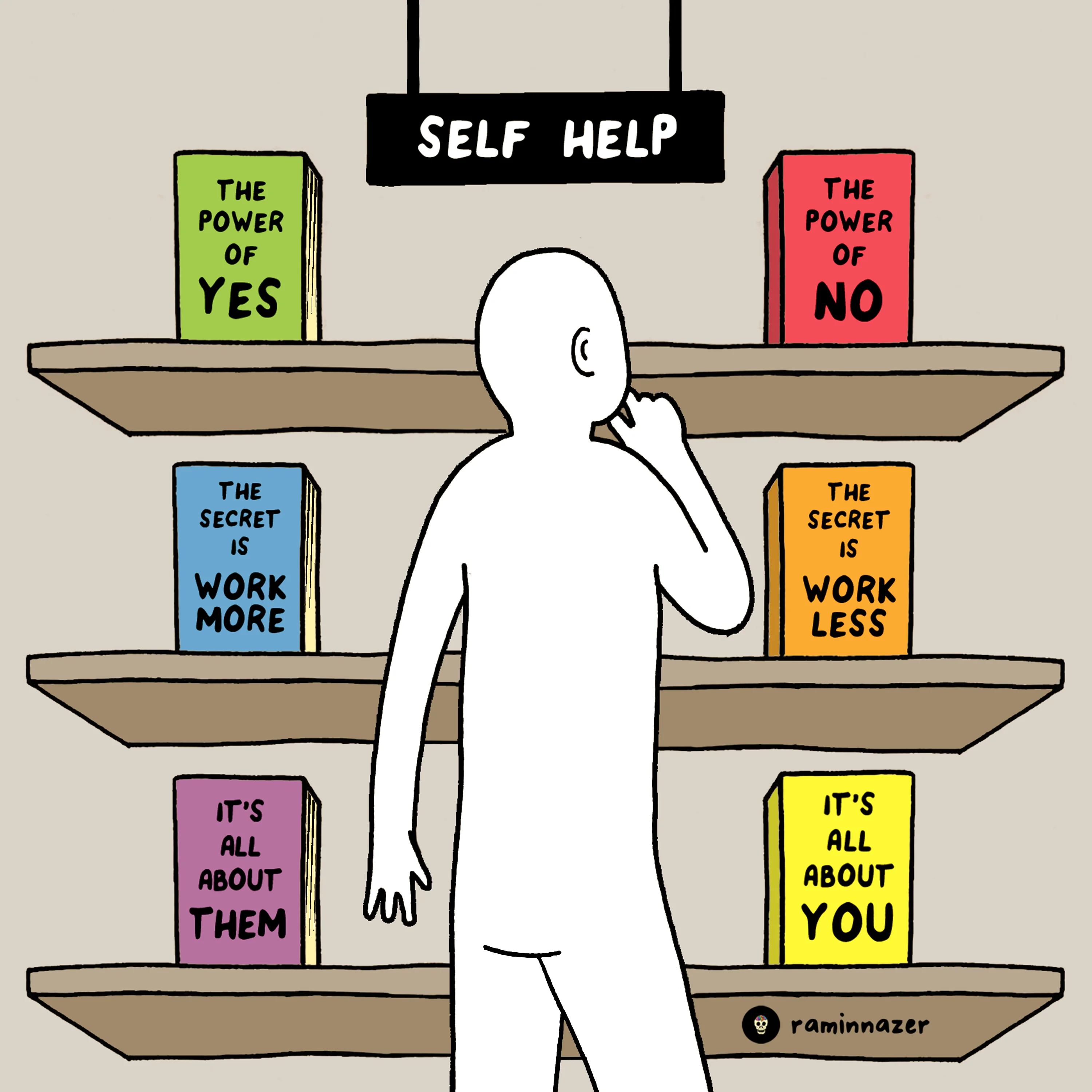this post was submitted on 01 Jan 2025
1064 points (98.9% liked)
Comic Strips
13123 readers
3322 users here now
Comic Strips is a community for those who love comic stories.
The rules are simple:
- The post can be a single image, an image gallery, or a link to a specific comic hosted on another site (the author's website, for instance).
- The comic must be a complete story.
- If it is an external link, it must be to a specific story, not to the root of the site.
- You may post comics from others or your own.
- If you are posting a comic of your own, a maximum of one per week is allowed (I know, your comics are great, but this rule helps avoid spam).
- The comic can be in any language, but if it's not in English, OP must include an English translation in the post's 'body' field (note: you don't need to select a specific language when posting a comic).
- Politeness.
- Adult content is not allowed. This community aims to be fun for people of all ages.
Web of links
- !linuxmemes@lemmy.world: "I use Arch btw"
- !memes@lemmy.world: memes (you don't say!)
founded 2 years ago
MODERATORS
you are viewing a single comment's thread
view the rest of the comments
view the rest of the comments

sometimes the research you are able do yourself is not enough because of hype. the hype alone can trigger "scientific studies" that get approved just because they are about a visible topic and the results get cherry-picked by "journalists" creating a false sense of consensus to everyone who didn't spend their life studying the topic in detail.
see books like 80/20 running (based on a "study" done by the author on members of a single running club with n<=5 participants per group) or baby led weaning (based on the ability of the author to bullshit parents with baby brain) that created whole movements behind them and claimed to be based on strict scientific research.
sometimes even researchers themselves can get swiped away by the collective delusion (hype) even in otherwise very rigorous fields (e.g. string theory in physics or all the "AI" research going on right now).
the only way to be sure that what you are learning is right is if it can show past results. someone (many someones) took the risk before you and went with it. and they came up with predictions that panned out and applications that were useful and are well known.
you can be adventurous and try new promising things, but be aware of what you are doing, why and what the cost and consequences are.
Scientific studies and journalists are opposites, why would you trust a journalist with information? All they have is opinions and they're not better than mine.
Luckily what I'm reading is very well studied and plenty of people from other sides of the CICO debate have input so it's an easy topic to learn up on and have respectable information.
I think for topics that are more fringe and or less sensation driven misinformation is easy to pass through. (But I guess the same can be said for extremely popular topics too)